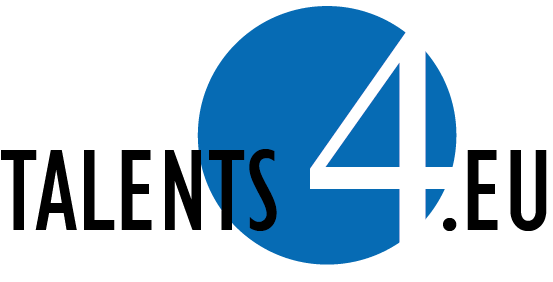Educators / Child Care Workers
There is a great shortage of qualified educators in Germany. Rising childcare rates and legal entitlements have massively increased the need for educators in recent years.
Due to low training numbers and the retirement of the baby boomer generation, the situation will worsen in the coming years. The Bertelsmann Foundation estimates that there will be a need for up to 250,000 educators in the next few years. Due to the legal right to an all-day school place, the demand will rise sharply again towards the end of the decade.
This demand will not be covered by the training market.

Educators from Spain
We find the right employees for your institution. Through contacts in various universities in Madrid and networks throughout Spain, we are able to address a large number of interested parties in a very short time.
Educators from Spain complete a well-founded course of study (“Magisterio de Educación Infantil”), which facilitates the recognition of their professional qualification in Germany.
Since 2019, we have already been able to place more than 150 educators. Our clients include municipalities, private and church providers – from small providers to providers with 70 daycare centres and more!
Selection procedure increases probability of success
Applicants undergo a selection process developed by Talentbrücke TALENTBRÜCKE GmbH & Co. KG. In addition to professional qualities, the focus here is particularly on personality traits.
Of course, future employers can be present in person or online at any point in the selection process.
The aim of the selection process is to find out which of the applicants will actually be successful in Germany. The expectations of the TALENTBRÜCKE staff and the International Formation Center regarding the quality of the participants have often been exceeded in past projects.
Translation of all documents
Job advertisements, applications, certificates, and other documents are of course translated by us – and by sworn translators wherever necessary.
Language and preparatory course
The next step for the participants is a language and preparation course at the International Formation Center. Over a period of 4-6 months, they are prepared for their new phase in life.
The course consists of 550 to 800 teaching units and teaches the language level B1 or B2. All participants will take a telc examination at the end of the course.
In addition to language skills, there will also be cultural preparations. All language content is adapted to suit everyday life and job-related requirements.
Accompanying the recognition of vocational and academic qualifications
If requested, TALENTBRÜCKE will handle all the necessary formalities concerning the recognition of foreign vocational and academic qualifications for the client.
We always observe the formal requirements of the respective federal state.
Frequently asked questions – Educators
Below you will find the most frequently asked questions about educators. A list of the most frequently asked questions on general topics of our projects can be found here…
Degree (e.g. magisterio en educacion infantil / early childhood education) - recognised in Germany.
Higher vocational training (4 years) - can be recognised in Germany.
Degree (e.g. as primary school teacher:in) - can be recognised in Germany
We accompany the recognition process from A to Z. This starts with collecting all the necessary documents from the applicants and preparing them so that they can be used for recognition in Germany.
Recognition works differently in each federal state. Feel free to ask us about it!
That depends on the training and - above all - on the federal state in which the skilled workers are to be recognised. While a certificate is recognised in some states, adaptation measures or specialised courses must be completed in others. We will be happy to advise you on the possibilities in your federal state.
The systems in Spain and Germany are very different.
In the age group from 0 to 3 years, the difference is not quite so strong in terms of content, although here the age groups are usually separated (one group for babies, one for 1-year-olds, etc.).
In Spain, 3- to 6-year-olds go to pre-school where they work on worksheets and generally prepare for school.
There is also a fundamental difference in childcare ratios. In Spain, educators are responsible for significantly more children than in Germany. Their pedagogical work can suffer as a result.
The degree programme usually provides for practical training of at least 6 months. The proportion of practical training during an apprenticeship is higher, but not as high as in Germany.
The dropout rate is about 10 per cent after one year - although the few dropouts usually happen early on. We arrange regular exchange meetings with our clients to identify emerging problems and to take countermeasures in good time. This helps to reduce the rates even further.
The educators are familiar with modern pedagogical concepts from their studies and training. However, the concepts are usually not applied in Spain, so that the knowledge is mainly theoretical.





